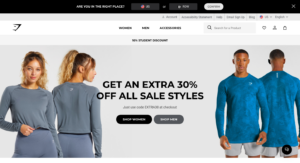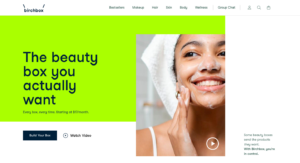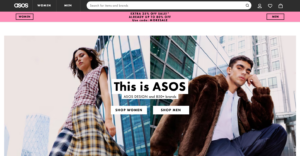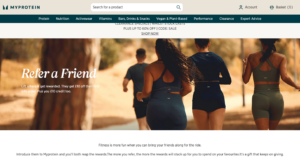The Power of Influencer Partnerships in Affiliate Marketing for DTC and Shopify Brands
In the world of direct-to-consumer (DTC) brands, one of the most essential strategies for expanding their reach and driving growth involves partnering with influencers in the affiliate marketing space. While Social Snowball seamlessly guides you through onboarding, managing, and tracking your influencer marketing programs, crafting the right strategy for recruiting influencers and fostering lasting partnerships is crucial. In this article, we will look into the power of influencer partnerships and how they can increase the growth of DTC brands. We’ll explore this topic in detail, featuring real-world examples and strategies, and provide you with a guide on effectively leveraging influencer partnerships.
Let’s dive right in!
Understanding Influencer Partnerships in Affiliate Marketing
In today’s world of e-commerce, influencer partnerships have become a game-changing approach. Influencers, particularly those with a big but engaging following, significantly influence consumer behavior and brand perception. This influence is so powerful today, where social media dominates our lives. DTC brands can tap into uncharted territories by aligning with influencers and reaching new audiences. The key here is understanding the unique appeal of these influencers and how they align with a brand’s values and offerings.
Why Influencer Partnerships Matter
In the highly competitive DTC market, influencer partnerships present a unique and profitable avenue for growth. Several success stories highlight the impact of such collaborations. Let’s consider the case of BrandX, a Shopify store specializing in eco-friendly cosmetics. By strategically teaming up with influencers who champion sustainability and eco-conscious living, BrandX was able to reach a broader and more engaged audience while also enhancing its credibility in the eco-friendly cosmetics niche. These real-world examples highlight the unlocked potential of influencer partnerships and how they can transform a brand’s trajectory.
Implementing the Strategy:
For those looking to begin on the influencer partnership journey, a clear roadmap is vital to ensure the success of this strategy. Here’s a guide on how to effectively implement influencer partnerships:
1. Identifying the Right Influencers
The foundation of a successful influencer partnership lies in identifying the right influencers. Finding influencers whose values align with the brand’s identity and ethos is essential. This ensures that influencer partnerships are not only profitable but also authentic. When selecting influencers, you also need to consider factors such as their niche, the demographics of their followers, and the values they promote. It’s important to find influencers who align with your target audience and align with your brand’s mission and values. A thoughtful selection of influencers can lead to more meaningful partnerships and tremendous success.
2. Building Authentic Relationships
Authenticity is vital in influencer partnerships. It’s not just about the numbers but about creating genuine and meaningful relationships that align with the target audience. Brands should look into the authenticity and trust that influencers have built with their followers. To encourage authenticity in these partnerships, it’s crucial to give influencers creative freedom while ensuring that their content aligns with your brand’s messaging. Building a genuine and mutually beneficial relationship with influencers can lead to long-term success and a more engaged audience. The stronger the relationship, the more authentic and compelling the content produced.
3. Tracking and Optimizing
Comprehensive tracking tools and expertise are necessary to ensure the effectiveness of influencer partnerships. This data-driven approach allows brands to measure the impact of influencer partnerships and continually refine their strategies. Tracking tools can help you monitor metrics such as website traffic, conversion rates, and revenue generated from influencer-driven campaigns. By analyzing this data, you can identify which influencers and campaigns are the most successful and make data-driven decisions to optimize your partnerships. Regularly analyzing and optimizing your influencer partnerships is important for maximizing their impact and return on investment.
Five DTC Brands Leading the Way
Here is a list of five Direct-to-Customer (DTC) brands that have perfected the art of influencer partnerships, setting a high standard for the industry.
1. GymShark

Gymshark, a leading fitness apparel brand, has made influencer marketing a core strategy. They collaborate with fitness influencers and athletes to promote their products, creating community and trust among their target audience.
2. HelloFresh

HelloFresh, a meal kit delivery service, partners with food and lifestyle influencers to promote their convenient cooking solutions. By doing so, they reach food enthusiasts looking for easy and delicious meal options.
3. Birchbox

Birchbox, a beauty subscription service, partners with beauty and skincare influencers to introduce their audience to new beauty products. These partnerships boost brand visibility and help customers discover recent beauty trends.
4. ASOS

ASOS, an online fashion retailer, often partners with fashion and lifestyle influencers to showcase their wide range of clothing and accessories. They’ve successfully leveraged influencers’ reach and fashion expertise to engage with their young, fashion-conscious audience.
5. Myprotein

Through influencer marketing, Myprotein, a sports nutrition brand, has a strong presence in the UK market. They work with fitness and nutrition experts to endorse their supplements and workout gear, which resonates with fitness enthusiasts.
Advantages and disadvantages of influencer partnerships in affiliate marketing
As we continue our exploration of influencer partnerships for DTC and Shopify brands, it’s also essential to understand the benefits and challenges this strategy brings. In this section, we’ll look at the advantages and disadvantages of influencer partnerships in affiliate marketing.
Advantages of influencer partnerships in affiliate marketing:
- Expanded Reach: Influencer partnerships offer access to a broader and more engaged audience, helping DTC and Shopify brands reach potential customers who might have been challenging to target through traditional advertising.
- Credibility and Trust: Influencers often have a strong bond of trust with their followers. Partnering with trusted influencers can enhance a brand’s credibility and develop trust among its target audience.
- Authenticity: Authentic relationships with influencers can lead to creating content that directly aligns with the audience, making it more effective in conveying the brand’s message.
- Cost-Effective Marketing: Influencer partnerships can often be a more cost-effective marketing strategy than traditional advertising methods, especially for smaller DTC brands with limited budgets.
- Data-Driven Optimisation: Tracking tools and analytics allow brands to measure influencer partnerships’ impact, providing valuable data to continuously refine and improve their strategies.
Disadvantages of influencer partnerships in affiliate marketing:
- Inconsistent Results: The success of influencer partnerships can vary significantly based on factors like the influencer’s reach, audience engagement, and the quality of the content produced. Results may only sometimes be consistent.
- Authenticity Concerns: In some cases, influencer partnerships may come across as inauthentic or driven solely by financial gain, leading to audience distrust and backlash.
- Budget Allocation: Partnering with influencers can require a significant portion of a marketing budget, and it may only sometimes produce the expected return on investment, especially if not carefully managed.
- Dependency on Influencers: Relying heavily on influencer partnerships means that a brand’s success can be closely tied to the actions and reputation of the influencers, which can be risky.
- Oversaturation: In some niches, influencer partnerships have become so common that audiences may become cold to sponsored content, reducing the impact of such collaborations.
Conclusion
In a time when trust and authenticity are essential, influencer partnerships in affiliate marketing offer a natural avenue for DTC brands to broaden their horizons and achieve sustainable growth. These collaborations can extend a brand’s reach, enhance credibility, and create meaningful connections with consumers. For DTC brands looking to stay ahead of the game, embracing influencer partnerships is not merely a trend but a strategic imperative. By following the steps outlined in this guide, brands can take advantage of the power of influencer partnerships to drive their success and make a lasting impact in the digital marketplace.
In today’s world, the synergy between influencer partnerships and affiliate marketing is a driving force that can lift DTC and Shopify brands to new heights of growth and success. The carefully selected influencers, authentic relationships, and data-driven optimization are the pillars that support this strategy. As DTC brands continue to navigate the ever-evolving landscape of e-commerce, influencer partnerships represent a dynamic and influential tool in their arsenal. The potential for growth and brand enhancement through these partnerships is boundless, making it a strategy worth exploring and investing in. Embracing influencer partnerships is not just a trend but a strategic decision that can shape the future of DTC and Shopify brands.




